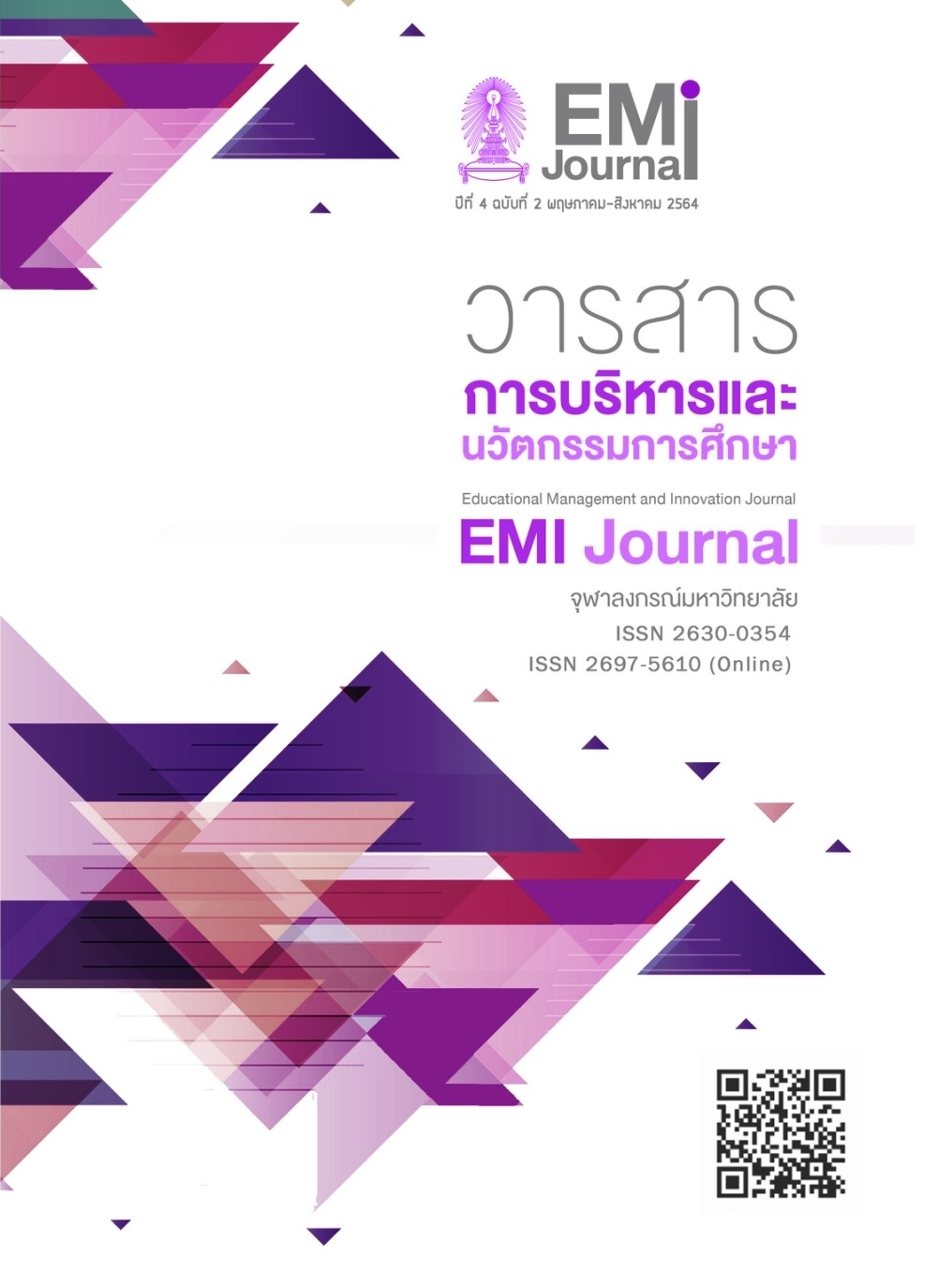การศึกษากรอบแนวคิดและสภาพที่พึงประสงค์ของเส้นทางอาชีพครูในประเทศกัมพูชา ตามแนวคิดผลสัมฤทธิ์ทางการเรียนที่แท้จริงของนักเรียน
คำสำคัญ:
Teacher Career Pathway, Authentic Student Achievement, Career progression, Career advancementบทคัดย่อ
The purposes of this study were 1) to examine the conceptual framework of teacher career pathway and authentic student achievement, and 2) to explore the desirable state of the teacher career pathway in Cambodia based on authentic student achievement. A mixed method was utilized. The content analysis and interviews were the research techniques for identifying the conceptual framework of teacher career pathway and the authentic student achievement. The desirable state was explored by using a set of survey questionnaire asked from 491 respondents comprising 40 school administrators and 151 teachers. The findings revealed that the conceptual framework of teacher career pathway was composed of three elements: the teacher position, the subsequent career pathway for each teacher position, and the components of teacher career pathway. The desirable authentic student achievement was found to cover three competencies which are construction of knowledge, disciplined inquiry, and value beyond school.
Downloads
เอกสารอ้างอิง
Avalos, B. (2011). Teacher professional development in teaching and teacher education over ten years. Teaching and Teacher Education, 27(1), 10-20.
Baroudi, J. J. (1988). The career needs of IS personnel: does the dual career ladder work? Paper presented at the System Sciences, 1988. Vol. IV. Applications Track, Proceedings of the Twenty-First Annual Hawaii International Conference on.
Brandt, R. M. (1990). Incentive pay and career ladders for today's teachers: A study of current programs and practices. SUNY Press.
Bredekamp, S., & Willer, B. (1992). Of Ladders and Lattices, Cores and Cones: Conceptualizing an Early Childhood Professional Development System. Young Children, 47(3), 47-51.
Carter, G. W., Cook, K. W., & Dorsey, D. W. (2011). Career paths: Charting courses to success for organizations and their employees (Vol. 32). John Wiley & Sons.
Crehan, L. (2016). Exploring the impact of career models on teacher motivation.
Darling-Hammond, L. (1997). Doing what matters most: Investing in quality teaching. ERIC.
Darling-Hammond, L. (2000). Teacher Quality and Student Achievement (Vol. 8).
Darling-Hammond, L., & Falk, B. (1997). Using standards and assessments to support student learning. Phi Delta Kappan, 79(3), 190.
Engel, L. C., Reich, M., & Vilela, A. (2014). The role of teachers in quality education in Latin America and the caribbean: Exploring new forms of horizontal cooperation (Vol. 25). Emerald Group Publishing Ltd.
Hackman, J. R., & Lawler, E. E. (1971). Employee reactions to job characteristics. Journal of applied psychology, 55(3), 259.
Joyce, B. R., & Showers, B. (2002). Student achievement through staff development.
Kong, H., Cheung, C., & Song, H. (2012). From hotel career management to employees’ career satisfaction: The mediating effect of career competency. International Journal of Hospitality Management, 31(1), 76-85.
Luce, J. A. (1998). Career ladders: Modifying teachers’ work to sustain motivation. Education, 15.
Lynch, M. (2012). Recruiting, retaining, and fairly compensating our teachers. International Journal of Progressive Education, 8(2).
Milanowski, A., & Miller, J. (2014). Using Career Ladders to Support STEM Master Teachers. In: US Department of Education Teacher Incentive Fund.
Newmann, F. M. (1996). Authentic achievement: Restructuring schools for intellectual quality. Jossey-Bass.
Odden, A., Odden, A. R., & Kelley, C. (2002). Paying teachers for what they know and do: New and smarter compensation strategies to improve schools. Corwin Press.
Osei, G. M. (2008). Career Ladder Policy For Teachers: The Case Of Ghana. International Review of Education/Internationale Zeitschrift für Erziehungswissenschaft, 54(1), 5-31. doi:10.1007/s11159-007-9071-y
Rosenbaum, J. E. (1989). 16 Organization career systems and employee misperceptions. Handbook of career theory, 329.
Snart, F. (2011). 2010 McKinsey & Company report: “How the world’s most improved school systems keep getting better”. In: Springer.
United Nations Educational, S. a. C. O. U. (2016). Teachers in Asia-Pacific: Career progression and professional development. Paris, France.



